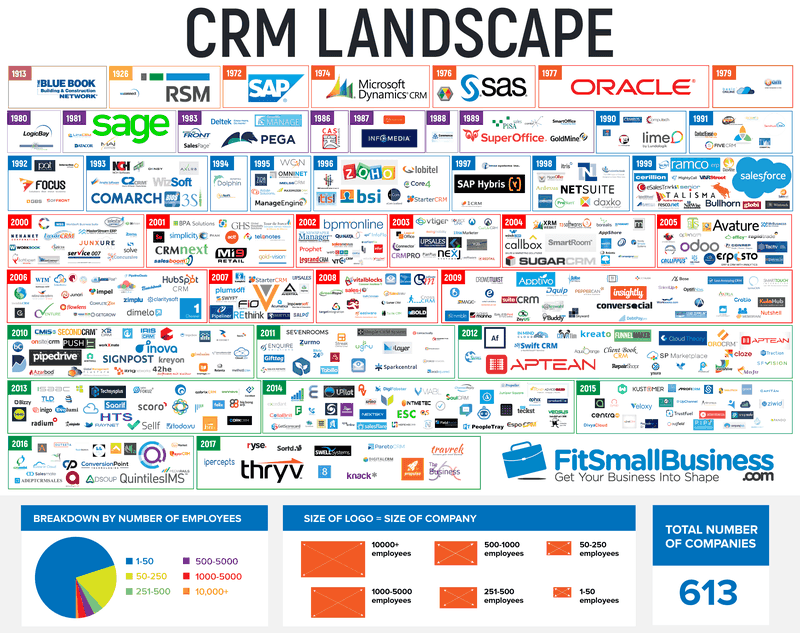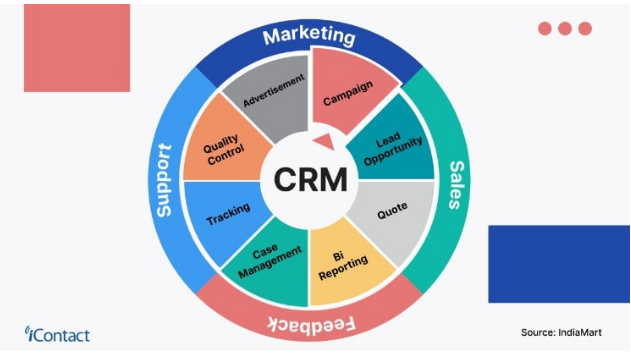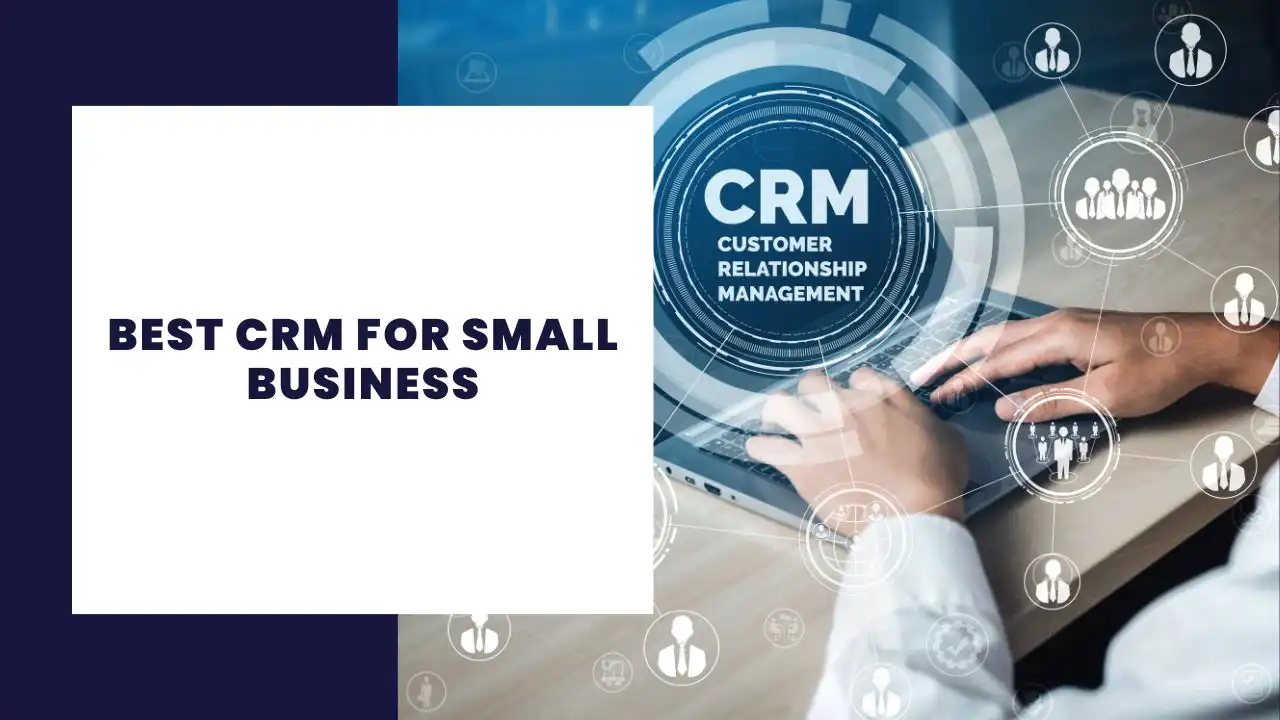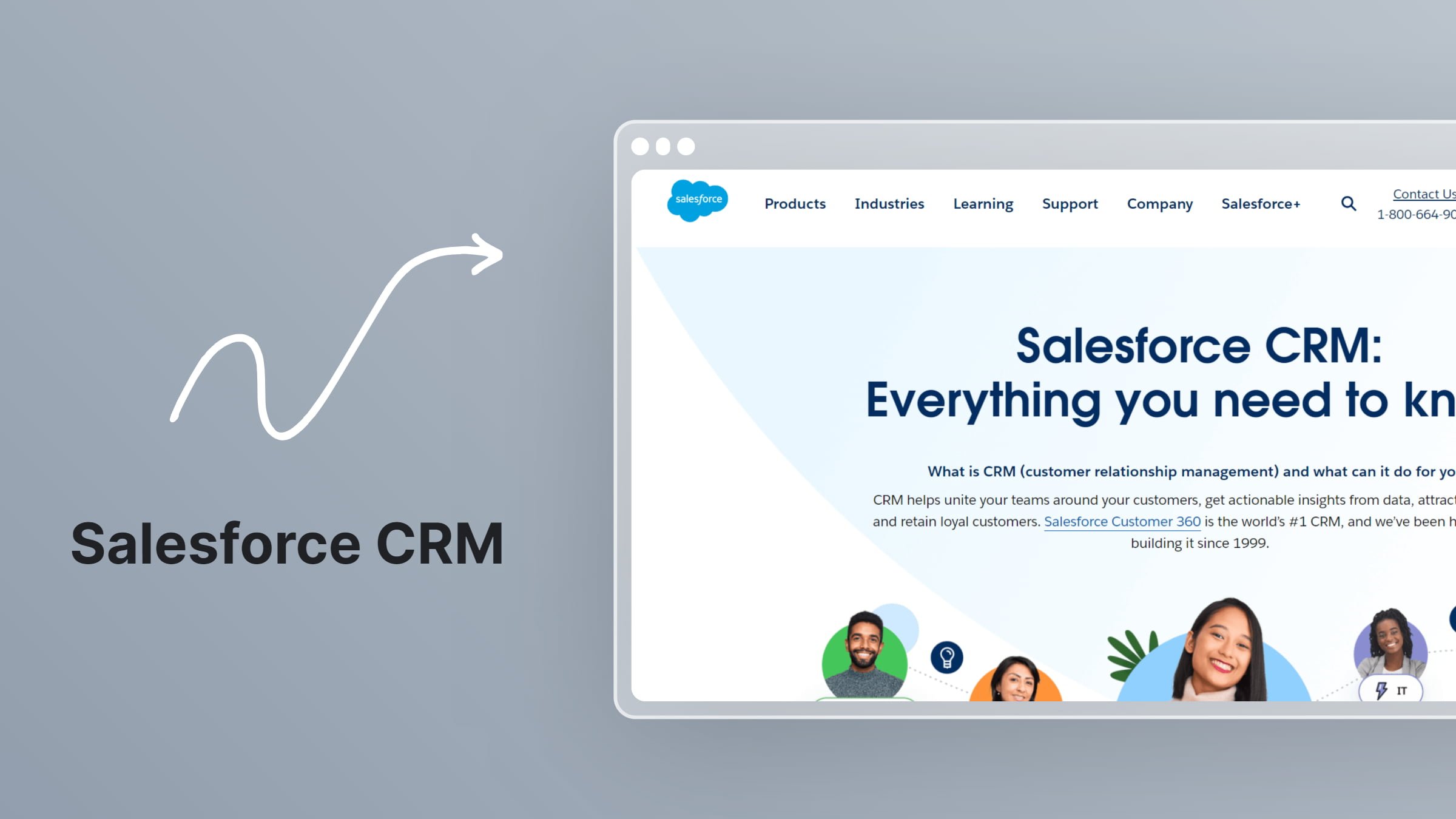Boost Your Small Business: The Ultimate Guide to CRM Tools

Boost Your Small Business: The Ultimate Guide to CRM Tools
Running a small business is like navigating a complex maze. You’re constantly juggling tasks, from managing customer relationships to tracking sales and marketing efforts. It’s a lot to handle, right? That’s where Customer Relationship Management (CRM) tools come in. These aren’t just fancy software; they’re your business’s secret weapon for growth and success. In this comprehensive guide, we’ll delve deep into the world of CRM tools, specifically tailored for small businesses. We’ll explore what they are, why you need one, and, most importantly, how to choose the perfect fit for your unique needs. Get ready to transform your business from chaotic to streamlined!
What is a CRM Tool, Anyway?
Let’s break it down. CRM, or Customer Relationship Management, is a technology for managing all your company’s relationships and interactions with customers and potential customers. Think of it as a centralized hub for all your customer data. This includes contact information, interaction history, sales pipelines, and marketing campaigns. Instead of scattering information across spreadsheets, sticky notes, and individual email inboxes, a CRM consolidates everything. This allows you to have a 360-degree view of each customer.
In simple terms, a CRM tool helps you:
- Organize and manage customer data.
- Improve communication and customer service.
- Automate repetitive tasks.
- Track sales and marketing efforts.
- Analyze data and make informed decisions.
It’s about building stronger relationships, increasing sales, and boosting overall efficiency. It’s about working smarter, not harder.
Why Does Your Small Business Need a CRM?
You might be thinking, “I’m a small business; do I really need a CRM?” The answer is a resounding YES! Here’s why:
1. Improved Customer Relationships
At the heart of any successful business are strong customer relationships. A CRM tool allows you to personalize your interactions with customers. You can access their purchase history, preferences, and communication logs with just a few clicks. This enables you to:
- Provide better customer service.
- Tailor your marketing messages.
- Anticipate customer needs.
- Build loyalty and advocacy.
Happy customers mean repeat business and positive word-of-mouth referrals.
2. Increased Sales and Revenue
CRM tools are designed to streamline your sales process. They help you track leads, manage your sales pipeline, and close deals more effectively. With a CRM, you can:
- Identify and prioritize high-potential leads.
- Automate follow-up emails and tasks.
- Track the progress of each deal.
- Forecast sales accurately.
This translates to more sales, higher revenue, and a better bottom line.
3. Enhanced Efficiency and Productivity
Time is money, especially for small businesses. CRM tools automate many time-consuming tasks, freeing up your time to focus on core business activities. This includes:
- Automating data entry.
- Scheduling appointments.
- Sending follow-up emails.
- Generating reports.
By automating these tasks, you can boost productivity and get more done in less time.
4. Better Data Analysis and Decision-Making
A CRM tool provides valuable insights into your business performance. You can track key metrics such as sales, marketing effectiveness, and customer satisfaction. This data enables you to:
- Identify areas for improvement.
- Make data-driven decisions.
- Optimize your marketing campaigns.
- Track the ROI of your efforts.
Data is power, and a CRM gives you the power to make informed decisions.
5. Scalability and Growth
As your business grows, so will your customer base and data. A CRM tool is designed to scale with your business. It allows you to:
- Manage a growing customer base.
- Handle increasing sales volume.
- Expand your marketing efforts.
A CRM ensures your business can handle growth without losing efficiency or compromising customer relationships.
Key Features to Look for in a Small Business CRM
Not all CRM tools are created equal. When choosing a CRM for your small business, consider the following key features:
1. Contact Management
This is the foundation of any CRM. It should allow you to:
- Store and organize customer contact information.
- Segment your contacts based on various criteria (e.g., demographics, purchase history).
- Track communication history (emails, calls, meetings).
Good contact management is essential for personalization and targeted marketing.
2. Sales Automation
Automate repetitive sales tasks to save time and increase efficiency. Look for features such as:
- Lead scoring.
- Automated email sequences.
- Sales pipeline management.
- Deal tracking.
Sales automation helps your sales team focus on closing deals.
3. Marketing Automation
Integrate marketing automation to streamline your marketing efforts. Key features include:
- Email marketing.
- Campaign management.
- Lead nurturing.
- Social media integration.
Marketing automation helps you reach the right audience with the right message at the right time.
4. Reporting and Analytics
Gain insights into your business performance with robust reporting and analytics. Look for features such as:
- Customizable dashboards.
- Sales reports.
- Marketing reports.
- Customer behavior analysis.
Reporting and analytics provide the data you need to make informed decisions.
5. Integrations
Choose a CRM that integrates with your existing tools. This might include:
- Email platforms (e.g., Gmail, Outlook).
- Marketing automation platforms (e.g., Mailchimp, HubSpot).
- Accounting software (e.g., QuickBooks).
- Social media platforms.
Integrations streamline your workflow and ensure data consistency.
6. Mobile Access
In today’s mobile world, access your CRM on the go. Look for:
- Mobile apps for iOS and Android.
- Responsive design for mobile devices.
Mobile access allows you to stay connected and manage your business from anywhere.
7. User-Friendly Interface
A CRM is only effective if your team uses it. Choose a CRM with an intuitive and easy-to-navigate interface. Look for:
- Clear and concise design.
- Easy-to-understand features.
- Minimal learning curve.
A user-friendly interface ensures your team will adopt and use the CRM effectively.
8. Customer Support
Choose a CRM with reliable customer support. Look for:
- Help documentation.
- Tutorials and training resources.
- Responsive customer service.
Good customer support is essential for getting help when you need it.
Top CRM Tools for Small Businesses
Now, let’s explore some of the best CRM tools for small businesses. This list is not exhaustive, but it provides a great starting point for your research.
1. HubSpot CRM
HubSpot CRM is a popular choice for small businesses, and for good reason. It’s free to use and offers a comprehensive suite of features, including:
- Contact management.
- Sales automation.
- Marketing automation.
- Reporting and analytics.
- Integrations.
HubSpot’s user-friendly interface and extensive training resources make it a great option for beginners. The free version is robust, and their paid plans offer even more advanced features.
Pros: Free plan, user-friendly, comprehensive features, strong integrations.
Cons: Limited features in the free plan, can be overwhelming for some users.
2. Zoho CRM
Zoho CRM is a powerful and affordable CRM solution for small businesses. It offers a wide range of features, including:
- Contact management.
- Sales automation.
- Marketing automation.
- Reporting and analytics.
- Customization options.
Zoho CRM is highly customizable, allowing you to tailor it to your specific business needs. They offer a free plan for up to three users, making it a great option for very small businesses or startups.
Pros: Affordable, highly customizable, good feature set, free plan available.
Cons: Interface can be complex, learning curve for advanced features.
3. Pipedrive
Pipedrive is a sales-focused CRM designed to help you manage your sales pipeline effectively. It offers:
- Visual sales pipeline management.
- Lead tracking.
- Deal tracking.
- Sales automation.
- Reporting and analytics.
Pipedrive’s intuitive interface and focus on sales make it a great choice for businesses that prioritize sales efficiency. It’s known for its ease of use.
Pros: Sales-focused, intuitive interface, easy to use, visual pipeline management.
Cons: Limited marketing automation features, can be expensive for large teams.
4. Freshsales
Freshsales is a CRM by Freshworks, offering a comprehensive suite of features, including:
- Contact management.
- Sales automation.
- Marketing automation.
- Reporting and analytics.
- AI-powered features.
Freshsales stands out for its AI-powered features, such as lead scoring and deal insights. It’s a solid all-around CRM with a focus on ease of use.
Pros: AI-powered features, easy to use, good feature set, affordable.
Cons: Limited integrations compared to some competitors.
5. Agile CRM
Agile CRM is an all-in-one CRM solution that combines sales, marketing, and customer service features. It offers:
- Contact management.
- Sales automation.
- Marketing automation.
- Help desk.
- Reporting and analytics.
Agile CRM is a good choice for businesses looking for an integrated solution. It’s a great value for the features it provides.
Pros: Integrated sales, marketing, and customer service, affordable, good value.
Cons: Interface can feel outdated.
6. Insightly
Insightly is a CRM known for its project management capabilities. It offers:
- Contact management.
- Sales automation.
- Project management.
- Reporting and analytics.
Insightly is a great option for businesses that need to manage both customer relationships and projects. It’s good for businesses that need to track projects alongside customer interactions.
Pros: Project management features, user-friendly, good for project-based businesses.
Cons: Limited marketing automation features.
How to Choose the Right CRM for Your Small Business
Choosing the right CRM is crucial for your business’s success. Here’s how to make the right decision:
1. Define Your Needs
Before you start researching CRM tools, identify your specific needs and goals. Ask yourself:
- What are your biggest challenges in managing customer relationships?
- What features are essential for your business?
- What are your sales and marketing goals?
- What’s your budget?
Clearly defining your needs will help you narrow down your options.
2. Research and Compare Options
Once you know your needs, research different CRM tools. Compare their features, pricing, and reviews. Consider:
- Free trials.
- Customer reviews.
- Integration options.
Create a spreadsheet to compare the features of each CRM tool side-by-side.
3. Consider Your Budget
CRM tools come in various price points. Determine your budget and choose a CRM that fits your financial constraints. Remember to factor in the cost of:
- Monthly subscription fees.
- Implementation costs.
- Training costs.
Consider the ROI (Return on Investment) of each CRM tool.
4. Test and Evaluate
Most CRM tools offer free trials. Take advantage of these trials to test the tools and evaluate their usability. Involve your team in the testing process. Consider:
- User experience.
- Ease of use.
- Feature set.
Get feedback from your team to ensure the CRM meets their needs.
5. Plan for Implementation
Once you’ve chosen a CRM, plan for its implementation. This includes:
- Data migration.
- Training your team.
- Customizing the CRM to your needs.
Ensure a smooth transition to avoid disruption.
6. Provide Ongoing Training and Support
Provide ongoing training and support to your team. This ensures they use the CRM effectively and get the most out of it. Consider:
- Training resources.
- Customer support.
- Regular check-ins.
Ongoing training and support are essential for long-term success.
Tips for Successful CRM Implementation
Implementing a CRM can be a game-changer for your small business. Here are some tips to ensure a smooth and successful implementation:
1. Involve Your Team
Get your team involved in the selection and implementation process. This ensures they’re invested in the new CRM and understand how to use it effectively. Their input is invaluable.
2. Clean Your Data
Before migrating your data, clean it up. This includes removing duplicates, correcting errors, and standardizing formats. This ensures your CRM data is accurate and reliable.
3. Customize Your CRM
Customize your CRM to meet your specific business needs. This includes setting up custom fields, creating sales pipelines, and configuring automation rules. Customization makes your CRM more effective.
4. Train Your Team Thoroughly
Provide comprehensive training to your team on how to use the CRM. This includes training on all features and functionalities. Ongoing training will ensure they get the most out of the system.
5. Integrate with Other Tools
Integrate your CRM with your other tools, such as email platforms, marketing automation platforms, and accounting software. This streamlines your workflow and ensures data consistency.
6. Monitor and Evaluate
Monitor your CRM usage and performance regularly. Track key metrics such as sales, customer satisfaction, and marketing effectiveness. Use this data to identify areas for improvement.
7. Seek Help When Needed
Don’t hesitate to seek help from the CRM vendor or a consultant. They can provide support and guidance during the implementation process and beyond. Don’t struggle alone; there’s help available.
The Future of CRM for Small Businesses
The world of CRM is constantly evolving. Here’s what you can expect in the future:
1. Artificial Intelligence (AI) and Machine Learning (ML)
AI and ML will play an even bigger role in CRM. Expect to see more AI-powered features, such as:
- Predictive analytics.
- Automated insights.
- Personalized recommendations.
AI will help you make smarter decisions and improve customer experiences.
2. Enhanced Personalization
CRM tools will become even better at personalizing customer interactions. This includes:
- Targeted marketing campaigns.
- Personalized product recommendations.
- Proactive customer service.
Personalization will be key to building stronger customer relationships.
3. Mobile-First Approach
Mobile access will become even more important. Expect to see:
- More robust mobile apps.
- Improved mobile user experience.
- Mobile-first CRM design.
Mobile access will allow you to manage your business from anywhere.
4. Integration and Automation
CRM tools will integrate with more tools and automate more tasks. This includes:
- Deeper integrations with marketing automation platforms.
- More automated workflows.
- Seamless data synchronization.
Integration and automation will streamline your workflow and save you time.
5. Focus on Customer Experience
The focus on customer experience will continue to grow. CRM tools will provide more features to:
- Improve customer service.
- Enhance customer engagement.
- Build customer loyalty.
Customer experience will be the key differentiator for businesses.
In short, the future of CRM for small businesses is bright. By embracing these trends, you can stay ahead of the curve and ensure your business thrives.
Conclusion
Choosing the right CRM tool is a significant decision for any small business. It can be the difference between struggling to manage customer relationships and thriving in a competitive market. By understanding the benefits of CRM, evaluating your needs, and selecting the right tool, you can streamline your operations, boost sales, and build stronger customer relationships. Remember to focus on user-friendliness, integration capabilities, and customer support when making your decision. The right CRM will become an indispensable asset, empowering your business to achieve sustainable growth and success. Don’t delay; start exploring the world of CRM tools today and unlock the potential of your small business!




